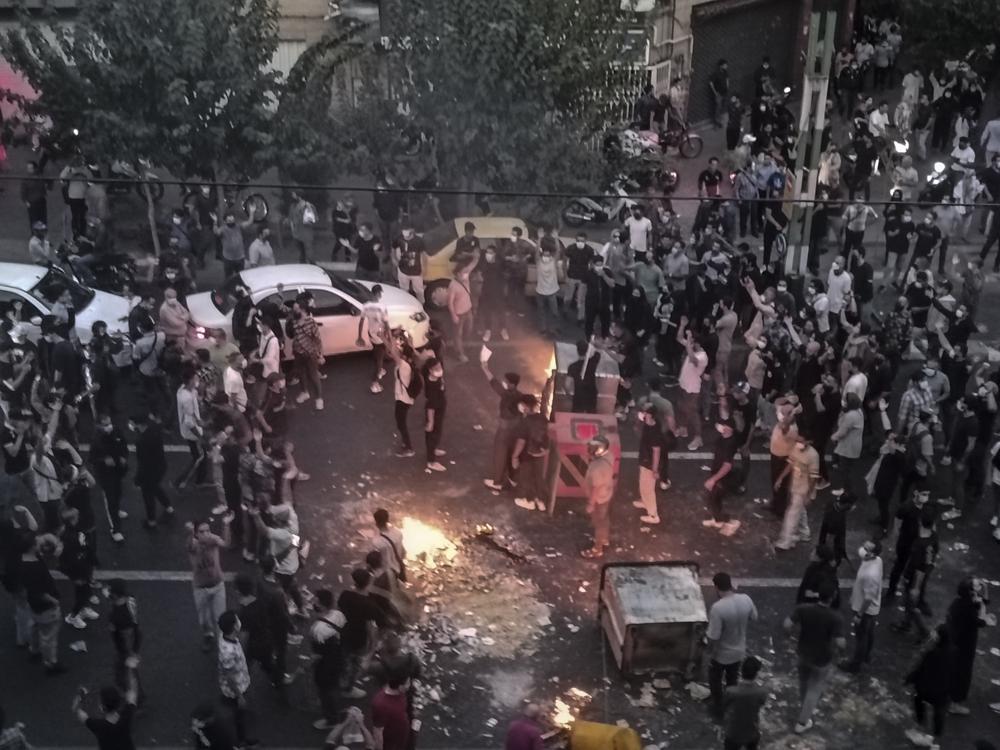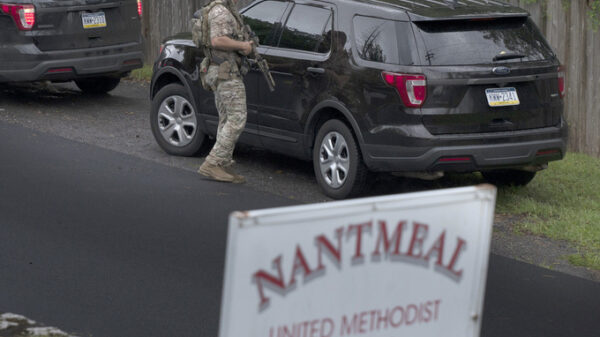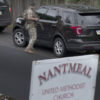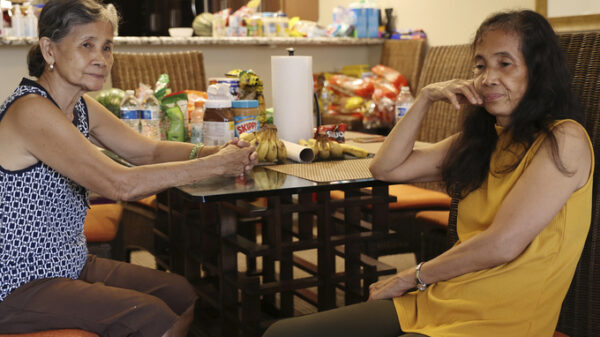FILE – Iranians protest a 22-year-old woman Mahsa Amini’s death after she was detained by the morality police, in Tehran, Sept. 20, 2022, in this photo taken by an individual not employed by the Associated Press and obtained by the AP outside Iran. Iran’s atomic energy agency alleged Sunday, Oct. 23, 2022, that hackers acting on behalf of an unidentified foreign country broke into a subsidiary’s network and had free access to its email system. Sunday’s hack comes as Iran continues to face nationwide unrest first sparked by the Sept. 16 death of Amini. (AP Photo/Middle East Images, File)
DUBAI, United Arab Emirates (AP) — Iran on Sunday released security footage that it said came from its notorious Evin Prison the night a fire broke out that killed at least eight inmates, an effort to clarify the government’s narrative amid growing international pressure.
The purported CCTV footage of the mayhem last weekend only added to the mystery of what happened the night of the blaze at the detention facility. Evin Prison is known for holding political prisoners, including protesters from the demonstrations that have convulsed the country over the past five weeks. Rights groups estimate that thousands have been swept up since the unrest began over the Sept. 16 death of Mahsa Amini, a 22-year-old woman in police custody for allegedly not adhering to the country’s strict Islamic dress code.
Iran’s state-run IRNA news agency aired an interview with an unnamed top prison guard who claimed a riot broke out as prisoners convicted of financial crimes tried to escape. However, no unrest or violence is visible in the released CCTV footage. The quick glimpses show crowds of detainees rushing through cell doors. Some men appear panicked as smoke fills the ward and a siren wails. A prisoner tries to break his cell lock with a fire extinguisher, while another tries with a mop. A man tries to damage a CCTV camera.
The cryptic video and shifting explanations for what happened last Saturday night at Evin Prison have sown doubt about the government’s version of events. Officials first said the unrest was stoked by “enemy agents” and some inmates who attempted to escape. They also claimed inmates set a sewing workshop on fire. But in numerous videos shared on social media, gunshots, explosions and protest chants can be heard.
Iran’s nationwide protests first focused on Iran’s state-mandated hijab, or headscarf, for women but transformed into one of the most serious challenges to the country’s ruling clerics. Protesters have clashed with police and even called for the downfall of the Islamic Republic itself. Security forces have fired live ammunition and tear gas to disperse demonstrations, killing over 200 people, according to estimates by rights groups.
Also on Sunday, Iran’s atomic energy agency alleged that hackers acting on behalf of an unidentified foreign country broke into a subsidiary’s network and had free access to its email system.
An anonymous hacking group claimed responsibility for the attack on Iran’s Atomic Energy Organization, demanding Tehran release political prisoners. The group, calling itself “Black Reward,” said it leaked 50 gigabytes of internal emails, contracts and construction plans related to Iran’s Russian-backed nuclear power plant in Bushehr and shared the files on its Telegram channel. It was unclear whether the breached system contained classified material.
“Unlike Westerners, we do not flirt with criminal mullahs,” the anonymous hacking group said in a Telegram post.
Iran did not specify which foreign country it believed to be behind the hack, but it has previously accused the United States and Israel for cyberattacks that have impaired the country’s infrastructure.
“These illegal efforts out of desperation are aimed at attracting public attention,” the Atomic Energy Organization said.
Meanwhile Iran’s leading teachers’ association reported that sit-ins canceled classes at multiple schools across the country in protest over the government’s crackdown on student protesters.
The union shared photos of teachers holding protest signs saying “Woman, Life, Freedom” instead of teaching in classrooms in the Kurdish cities of Sanandaj, Marivan, Kermanshah and Saqez, as well as in the West Azerbaijan and mountainous Hamadan provinces, among others.
“Schools have become barracks and tear gas is thrown in the faces of elementary school students,” one teacher wrote in a letter shared by the union.
Campuses have long been a flash point for unrest in Iran, including during the 1953 student protests under the Western-backed shah and during the 1999 pro-democracy demonstrations under former reformist President Mohammad Khatami.
Scattered demonstrations continued at universities across the country on Sunday, footage showed. At the prestigious Sharif University of Technology in Tehran, the scene of an hours-long siege by security forces earlier this month that ended with dozens of students arrested, protests erupted as students tore down the barrier dividing men from women in the campus cafeteria, a students’ association said.
“Freedom! Freedom! Freedom!” the massive crowd shouted at the top of their lungs, footage showed, pumping their fists in the air.
Copyright 2021 Associated Press. All rights reserved.










































